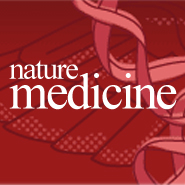The so-called diastolic heart muscle weakness is, together with increased blood pressure, one of the most frequent causes of death in the western world. This cardiac muscle weakness is caused by the progressive loss of elasticity with concomitant thickening of the cardiac walls. Performance weakness, shortness of breath, and an overall poorer quality of life are the consequences of this disease. Diastolic heart failure is well diagnosed today but there is no effective treatment yet.
The work of this international research group has now opened up a new path for therapies:
Spermidine supplied via the diet was shown to improve cardiac health (elasticity and diastolic relaxation) in aging mice and to lower the blood pressure in rats that had increased blood pressure due to a saline diet. In cooperation with the Medical University of Innsbruck (Stefan Kiel), the team was also able to show that even in humans higher amounts of spermidine administered via food are correlated with significantly less cardiac diseases and lower blood pressure. The Institute HEALTH of JOANNEUM RESEARCH significantly contributed to the success of the project by performing metabolome analyses and special analyses methods for spermidine. The results were published in the renowned journal Nature Medicine:
Links:
- Article in Nature Medicine
- orf.at
- derstandard.at
- Metabolomics @ Joanneum Research
- University of Graz
- Medical University of Graz
Bibliographic Data:
"Cardioprotection and lifespan extension by the natural polyamine spermidine",
Tobias Eisenberg, Mahmoud Abdellatif, Sabrina Schroeder, Uwe Primessnig, Slaven Stekovic, Tobias Pendl, Alexandra Harger, Julia Schipke, Andreas Zimmermann, Albrecht Schmidt, Mingming Tong, Christoph Ruckenstuhl, Christopher Dammbrueck, Angelina S Gross, Viktoria Herbst, Christoph Magnes, Gert Trausinger, Sophie Narath, Andreas Meinitzer, Zehan Hu, Alexander Kirsch, Kathrin Eller, Didac Carmona-Gutierrez, Sabrina Büttner, Federico Pietrocola, Oskar Knittelfelder, Emilie Schrepfer, Patrick Rockenfeller, Corinna Simonini, Alexandros Rahn, Marion Horsch, Kristin Moreth, Johannes Beckers, Helmut Fuchs, Valerie Gailus-Durner, Frauke Neff, Dirk Janik, Birgit Rathkolb, Jan Rozman, Martin Hrabe de Angelis, Tarek Moustafa, Guenter Haemmerle, Manuel Mayr, Peter Willeit, Marion von Frieling-Salewsky, Burkert Pieske, Luca Scorrano, Thomas Pieber, Raimund Pechlaner, Johann Willeit, Stephan J Sigrist, Wolfgang A Linke, Christian Mühlfeld, Junichi Sadoshima, Joern Dengjel, Stefan Kiechl, Guido Kroemer, Simon Sedej & Frank Madeo
Nature Medicine,<time datetime="2016-11-14"> 2016,</time> doi:10.1038/nm.4222
